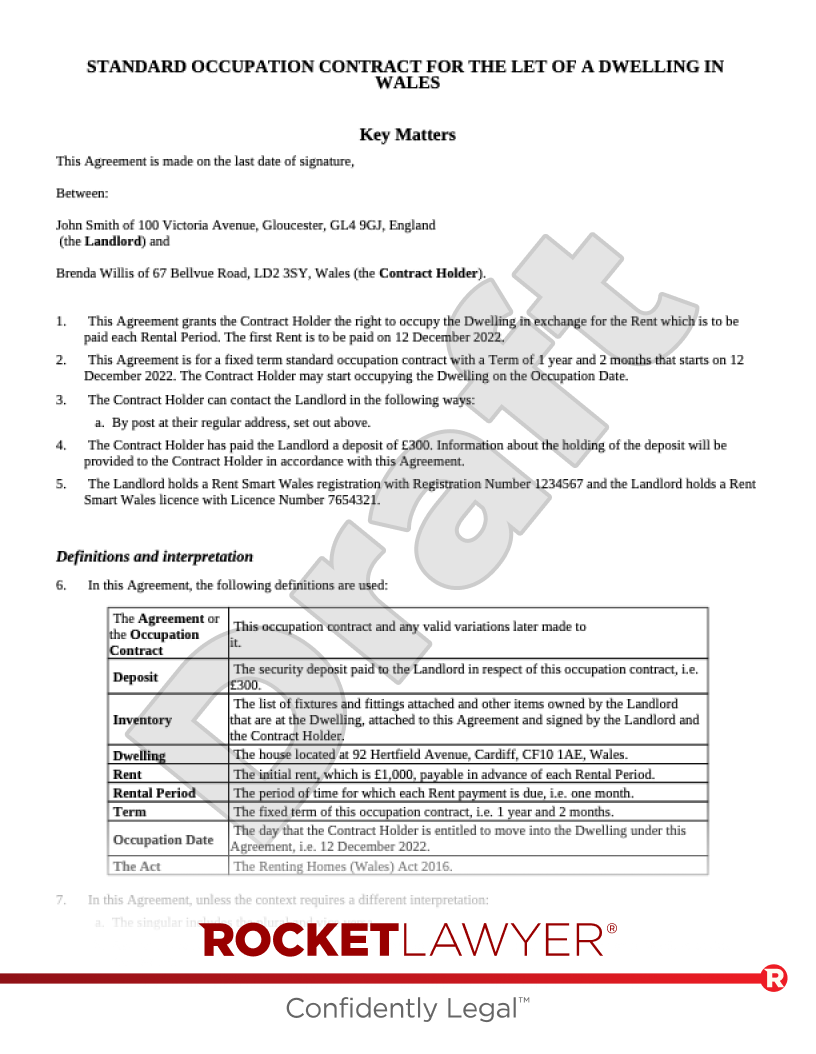Letting documents
Since 1 December 2022, the Renting Homes (Wales) Act 2016 (the Act) has changed how residential property is rented and managed in Wales.
In all circumstances, it is essential that landlords use the correct document when renting out residential property. This ensures the person renting the property (ie the ‘contract holder’) and the landlord know and understand their rights and obligations with regard to the property.
For more information on letting properties, read Renting property.
Occupation contracts
Since 1 December 2022, most people in Wales will rent residential property under an occupation contract. This is an agreement between the landlord and the contract holder. Most of those who previously rented residential property under an assured shorthold tenancy agreement or licence will have their contract converted to an occupation contract.
Occupation contracts can either be standard occupation contracts or secure occupation contracts depending on the type of landlord.
For more information, read Occupation contracts in Wales.
What is a contract holder?
A contract holder is a term introduced by the Act. It applies to individuals (over 18) who rent a dwelling (ie residential property) from a landlord in Wales.
Under the Act there is less distinction between ‘tenants’ and ‘licensees’, so the term ‘contract holder’ may apply to both so long as they are renting under an occupation contract.
What are joint contract holders?
Under the Act, contract holders can be joint contract holders. This means that, with the landlord’s consent (which must not be unreasonably withheld or delayed), a new contract holder can be added to an existing contract without the contract coming to an end. Similarly, an existing joint contract holder can move out and leave the occupation contract without it coming to an end.
Joint contract holders are fully liable for all the obligations under the contract. This means that if one joint contract holder does not pay rent, the remaining joint contract holders will be liable for the rent in full. However, joint contract holders are only liable for the obligations of the contract for the duration that they are a contract holder under the contract. In other words, once a contract holder leaves the contract, they will no longer be liable for any obligations under the contract.
Lodger agreements
Under a lodger agreement, a lodger rents a spare room in the property the landlord lives in. Lodgers typically have the right to use the rent they rent and the communal areas of the property (eg bathroom, kitchen and garden).
Under the Act, certain contracts which meet the requirements of an occupation contract will not be occupation contracts unless the landlord gives notice that the contract is an occupation contract. Lodger agreements fall into this category.
In most circumstances, it will be preferable for a live-in landlord taking on a lodger to do so under a licence, as opposed to an occupation contract. This is because occupation contracts grant contract holders more rights than a licence. Landlords can use a Lodger agreement to take a lodger on under a licence.
For more information, read Taking in a lodger and do not hesitate to Ask a lawyer if you have any questions.
Holiday lets
Holiday lets enable property owners to rent out a furnished property as a holiday home for a short period of time. Typically, the person renting the holiday home (known as a ‘holidaymaker’) does not get the right to remain in the property after the rental period.
Under the Act, holiday lets, like lodger agreements, will only be considered occupation contracts if the landlord notifies the contract holder that this is the case. As with lodger agreements, it will generally be preferable for property owners renting out a holiday home not to do so under an occupation contract. This is because occupation contracts grant contract holders greater rights with respect to the property.
For more information, read Holiday lets and do not hesitate to Ask a lawyer if you have any questions.




